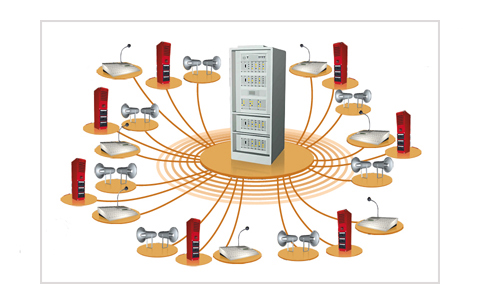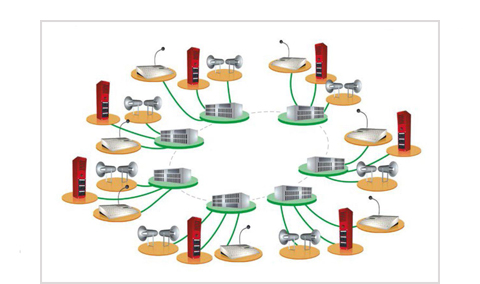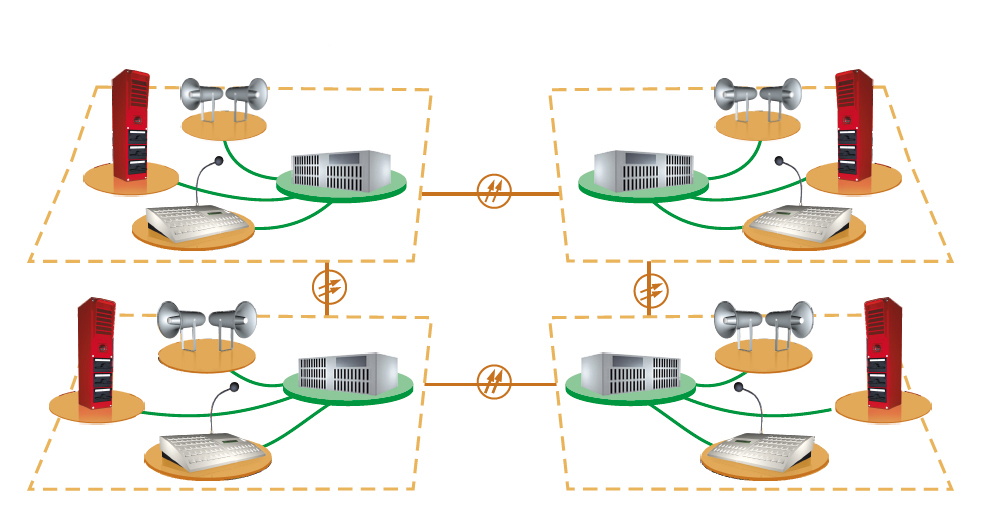Comparison of digital communication systems construction models
The production sphere of business is most at risk. Any incidents and emergencies at work can seriously affect the reputation and cause major material damage to the enterprise. Cases involving injuries or death of personnel are widely publicized in the media, and major accidents often have serious consequences for the surrounding areas and the natural environment. Thus, the accident at the diamond mining company ALROSA’s Mir mine in the summer of 2017 was one of the last major accidents, causing the death of eight miners. At the conclusion of Rostekhnadzor, the main causes of the accident were errors in design solutions and violations of industrial safety rules.
That is why decisions in the field of organization of operational communication and loud notification systems are of paramount importance in building industrial safety at the facilities. Technological communication systems enable company employees to immediately solve production tasks requiring mobility and quick response and exchange information to ensure coordinated actions. This leads to the reduction of production losses, effective management, and reliable security of the facility in normal and emergency situations.
The role of operational communication and notification systems

Centralized system expansion |
|
| Two-way loud-speaking, dispatching, command-search subsystems, notification systems and conference calls, as well as radio communications, which are the most demanded at any industrial enterprise, should be interconnected and integrated into a single industrial communication system. The system of operational communication is based on a decentralized or centralized principle. |  |
Decentralized system |
|
 |
When building a centralized system, all terminals connected to establish communication in production are connected via wired lines to the central switch, which is installed in the control room and is the “heart” of the entire system. |
Centralized system |
|
| The expansion of communication systems occurs in conjunction with the expansion of industrial enterprises. At the same time, certain restrictions are imposed within the scope of system expansion — over cable lines and limit terminals, with which it is possible to load the processor. |  |
Centralized system. Switch failure |
|
 |
In a situation where the central switch fails, communication with all network elements is lost. Installing a backup switch is not a universal solution. If the central switch fails, the entire load transfers to the backup one.
But in most cases both switches in production are located in one server room. Therefore, in case of major accidents and communications room fires, all the equipment completely burns down, including the backup switch. The failure of the entire system affects operational activities and entails heavy losses. |
The main advantage of decentralized communication systems built on VoIP technology is the lack of a single point of failure. For any abnormal and emergency situations – for example, an accident on the main switch or a cable break – system components will continue to operate smoothly.
Each production plant in a decentralized technological communication system is an independent element with its own control module, allowing to connect its own separate section. At the same time, all of them are united in a single communication system in production through a fiber-optic network.
Decentralized system

The advantage of a decentralized system is the simplicity in building, scaling, and managing the system. The stable operation is also ensured by the duplicated interface connection, guaranteeing the complete operability of the equipment. IP technology allows to place equipment anywhere in the world and manage it at any distance.
It is noteworthy that manufacturing enterprises differ from each other in production technology and purpose, the degree of complexity of production organization, and the level of technical equipment. The implementation of a decentralized technological communication system is not always required in production. But it is important that communication technologies are not standing still; they are constantly evolving and improving. Innovative communication technologies are aimed at improving the quality of products and the perfection of the manufacturing sector itself. Their implementation, including of operational communication decentralized systems, is aimed at the perfect and effective use of both economic, material, and social resources.

